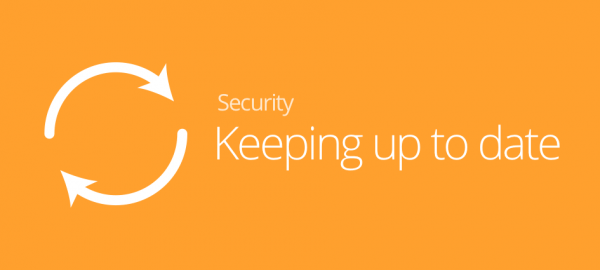If you stop someone in the street and ask them, “What is cyber security?” they’ll likely point to news on the latest data breach. When cyber security makes the news, it tends to be for all the wrong reasons. It’s because a major organisation has suffered a data breach or had its systems shut down due to ransomware or a DDoS attack. Because of this, it’s easy to think it’s something that only affects larger businesses but, in fact, whether you’re a sole trader or a global conglomerate, cyber security is something you need to take seriously.
Connected world
More than ever we rely on technology in our everyday lives. That means more data about us is stored by businesses and governments. Cyber security is important to keep this data safe and ensure that it doesn’t fall into the wrong hands.
So, exactly what is cyber security? In fact, it’s a number of things, it encompasses the security of individual systems, by installing firewalls and anti-virus solutions and ensuring that they’re protected by strong passwords.
But it also covers the security of networks in businesses and other organisations, as well as the security of data kept in the cloud. In addition, it covers data protection and loss prevention, as well as identity management.
We can also look at cyber security in terms of the types of threats that it is designed to guard against. These include viruses and malware, ransomware and denial of service attacks. But it also covers attacks aimed at humans rather than machines, such as phishing and social engineering. Increasingly, cyber criminals follow the money, focusing on attacks such as ransomware and cryptominers that yield the greatest returns.
Constant change
The computing industry as a whole is one that changes rapidly. This applies equally – if not more so – to the world of security. Hackers and cyber criminals are engaged in a constant arms race with software companies and security systems providers.
What this means for businesses is that they can’t afford to ignore cyber security. The impact of a cyber attack or data breach isn’t just inconvenient, it can lead to you losing customers and cause damage to your company’s reputation.
As systems have become harder to attack, thanks to more rigorous patching regimes and software that is designed with security in mind from the outset, so attackers have turned to new techniques. Where for many years Windows PCs have been the focus of attacks, the cybercriminals have recognised that these have become more secure. Since more of us now access the internet and our business systems on mobile devices, there has been a shift to attacking these.
There’s increasing recognition that humans are the weakest part of the security ecosystem, so attacks concentrate on social engineering designed to fool people into disclosing passwords and other information. On the defensive side, this is leading to a greater emphasis on training to allow people to spot the signs of an attack, as well as a shift to artificial intelligence-based systems to try to filter out phishing emails or spot the early signs of compromise before it leads to a serious breach.
Of course, at names.co.uk it’s cyber security is something we’re always staying on top of, and you can too. SSL certificates are a great way to keep your website secure – take a look here
